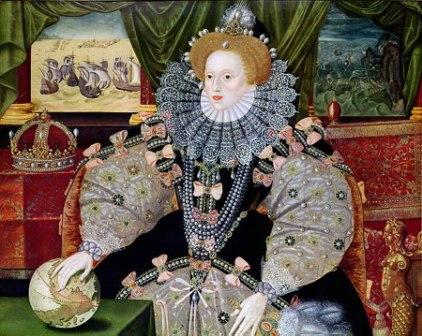 |
| A detail from a portrait of Robert Devereux, the 2nd Earl of Essex by Marcus Gheeraerts. The painting is from the 1590's, so this is probably how Essex looked at the time he staged his senseless rebellion against Queen Elizabeth I. Picture acquired through Wikimedia Commons. Image public domain. |
The rebellion of Robert Devereux, the 2nd Earl of Essex (1566-1601) and his cronies is very likely alluded to in one of my favorite Shakespeare comedies, Much Ado About Nothing:
"Like favorites, made proud by princes, that advance their pride against the power that bred it."
Social commentary and political criticism was always very craftily hidden within Shakespeare and other early-modern playwrights works. There could be serious consequences for openly criticizing policies or questioning authority in the age of monarchy. For example, Ben Jonson's work The Isle of Dogs was banned from ever being published because it was deemed so utterly offensive after being performed only once in 1587. Jonson and two others were arrested and thrown into prison under the orders of Robert Cecil. The co-author, Thomas Nashe was spared the humiliation; Nashe claimed that he had merely written the introduction to the play, and those investigating the matter believed him.
 |
| Robert Cecil, Earl of Salisbury and son of William Cecil Lord Burghley. Elizabeth called Robert Cecil her "pygmy" (she was fond of giving odd pet-names to those who were close to her) because of his abnormally small stature. This painting of Robert Cecil in his robes of The Order of The Garter is by John de Critz; It was completed c. 1608 in the reign of James I, under whom Robert Cecil also served. Picture acquired through Wikimedia Commons. Image public domain. |
The work was so effectively suppressed that to this day we still do not know why it was deemed to be objectionable. Some theories are that the Queen herself was satirized in the play, but more likely it was because the piece was lampooning a few high-ranking nobles at court. Jonson would also be reprimanded for other works in the 17th century under the reign of James I.


